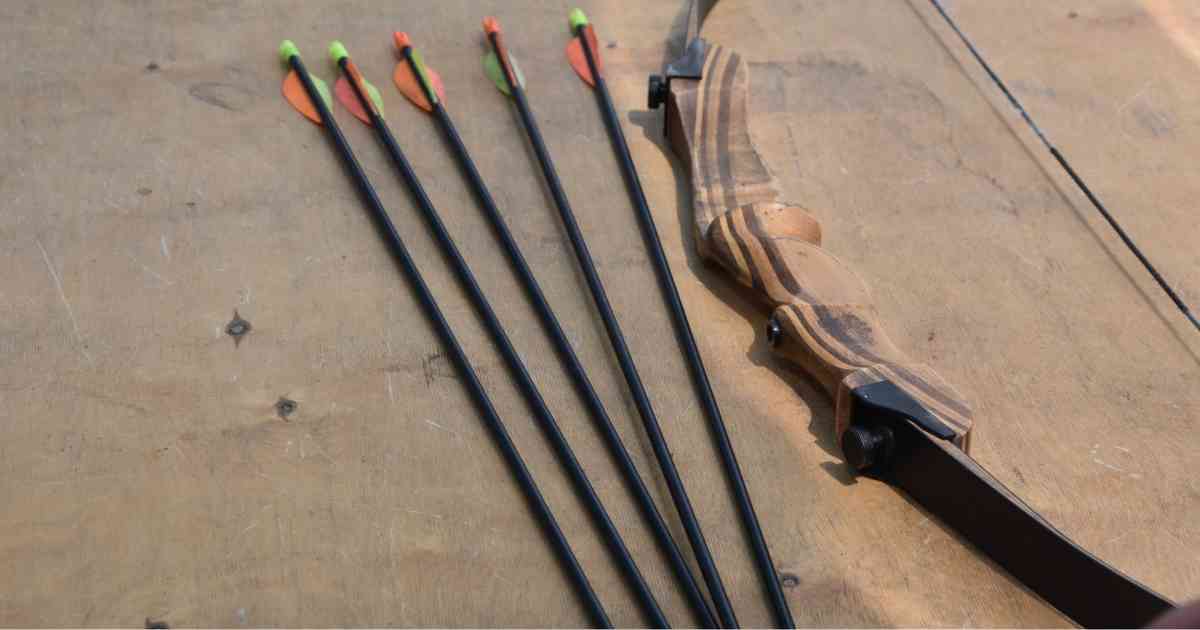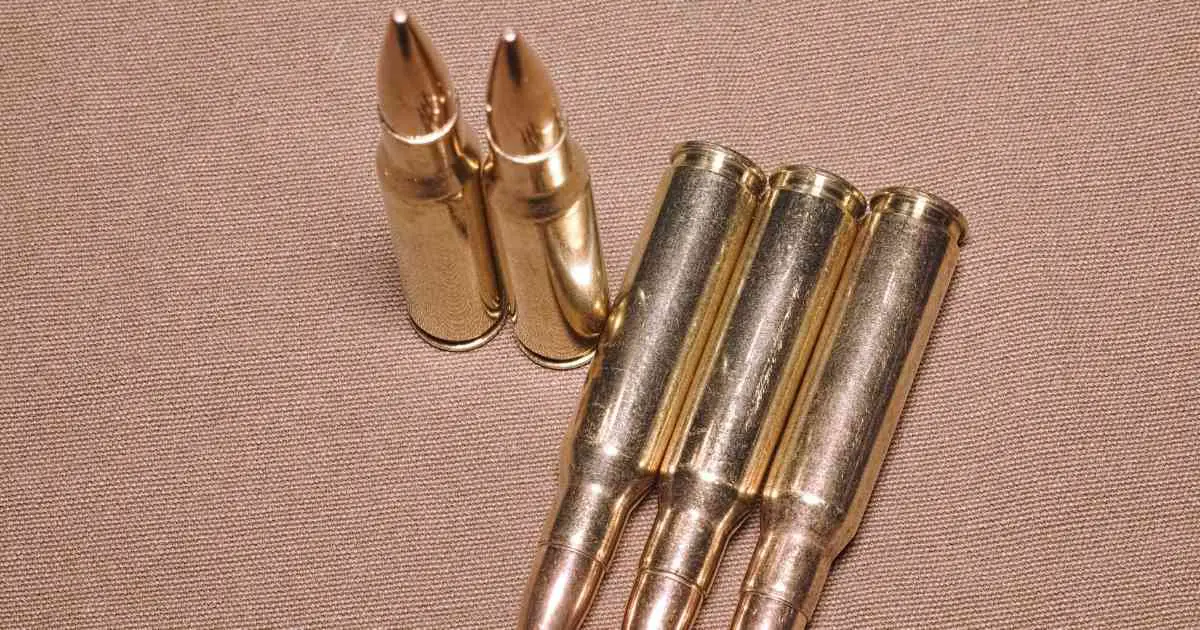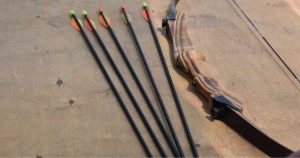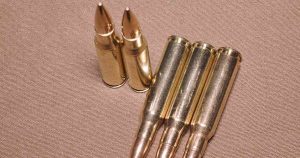Owning a gun comes with huge responsibility. In addition to learning how to use a hunting or defensive firearm properly during practice sessions, proper maintenance is also vital as well. This is why many gun owners often find themselves asking the question: how often should I clean my gun?
Here’s everything you need to know when it comes to the routine maintenance of any type of gun!
How Often Should I Clean My Gun?
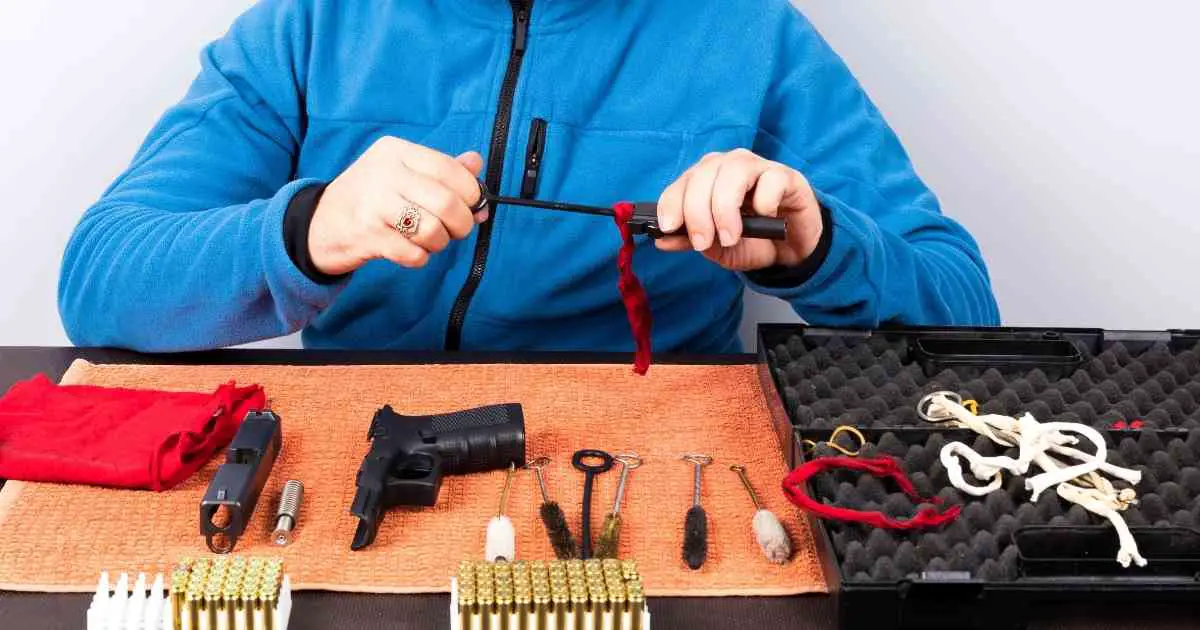
Cleaning your gun after each shooting session (or at least twice per year) is always a good idea. Frequent cleaning like that effectively reduces the risk of experiencing many of the common issues associated with using guns.
That said, frequent cleaning like that may not be possible or realistic for everyone every time. Because of this, there are two basic styles you can follow for cleaning guns.
1. The Light Cleaning Style
This involves going over the gun with cold bore brushes after each range trip. As the standard bore cleaning brush is lightweight and can be moved around easily, you can always take it with you to the range and use it to increase your gun cleaning frequency.
What’s more, carrying out this type of routine maintenance only takes a few minutes, so it isn’t too inconvenient as well.
2. In-Depth Cleaning Style
This is the traditional way of thoroughly cleaning your gun. It involves first dismantling the firearm into a cleaning tray before going over its complex pieces one at a time with caliber-specific cleaning kits.
As this is a deep cleaning process, it’s considerably more time and effort-consuming.
Factors That Influence Your Gun Cleaning Maintenance Routine
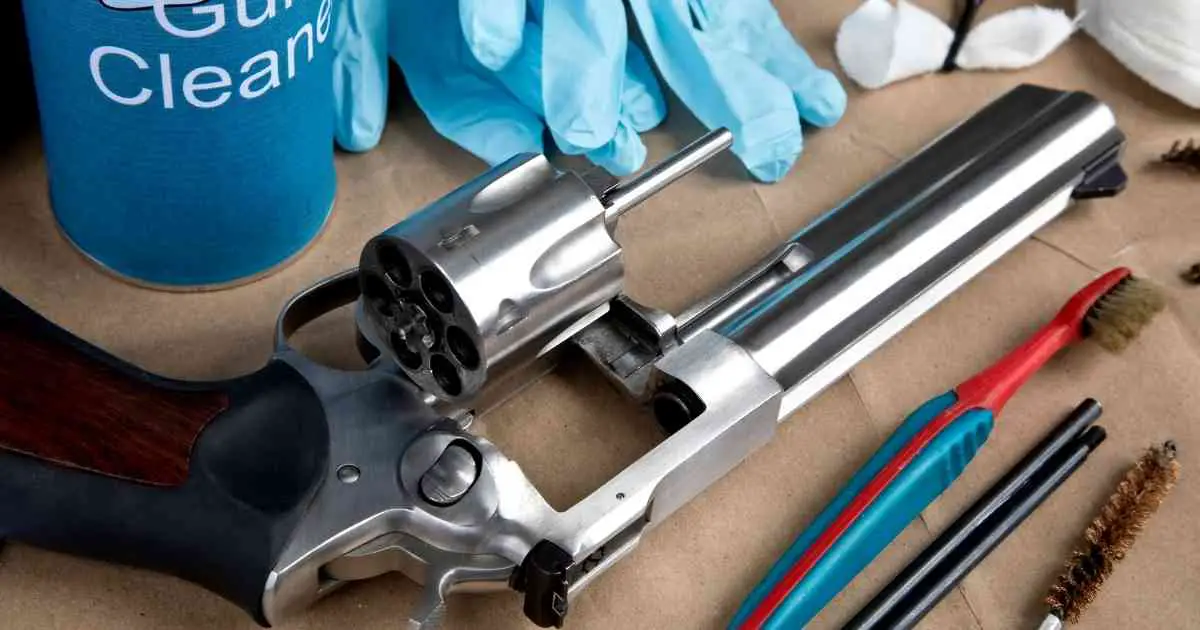
The type of gun, bullet type, frequency of use, and weather conditions are some of the most important factors to consider when cleaning guns.
Whether you settle for the in-depth or quick cleaning process, you should be strongly influenced by these four variables. Each element has a considerable impact on your gun’s reliability.
The Type of Gun
Each type of gun usually has a certain shooting frequency it can handle before you have to put it through a cleaning routine, or else you risk suffering reliability issues.
For example, due to the gun material choice of most clay and paper target firearms, you can mostly get away with cleaning them only a couple times. These types of guns can pump out as many as 400 rounds or more before residual buildup and other damaging particles become a problem.
On the other hand, you need to clean semi-automatics more frequently, as these guns need to have spotless internal elements if they’re to make a clean shot.
The Bullet Type
Bullets come in different shapes and can be made from materials like steel, lead, or polymer. The bullet material of some ammo can leave corrosive residue in the bore and chamber of your firearm after discharge.
Any bullet metal that leaves salt powder residue is known as a corrosive ammunition cartridge. This phenomenon is more commonly seen with old, Berdan-primed military surplus ammo.
A gun that fires corrosive ammo needs to be cleaned more often to shield its bore against corrosion.
Frequency of Use
People who only hit the shooting range from time to time, shoot a few rounds, oil their gun immediately after, and practice proper storage can get away with deep cleaning their firearm only once in a while.
If you go to the range more frequently and fire 250-300 rounds per shooting session, you will have to incur those pricey maintenance expenses or else your gun will succumb to premature wear.
How regularly you use your gun also has a direct bearing on how often you should break out any gun cleaning solutions and cleaning wipes.
Weather and Environmental Conditions
Where and when you use your gun also affects its functionality. For instance, people who expose their firearms to morning moisture or an especially humid environment should have a comprehensive cleaning session at least once a week.
This helps maintain the protective layers of the gun in ambient moisture conditions and limits excess wear.
Gun owners who use their firearms in dry, harsh conditions aren’t exempt either. Dust, sand, and dirt particles have an effect on accuracy and reduce the safety of your gun. You need to clean your firearm fairly regularly if you use it in such conditions frequently.
What Happens to Your Gun Without Proper Maintenance
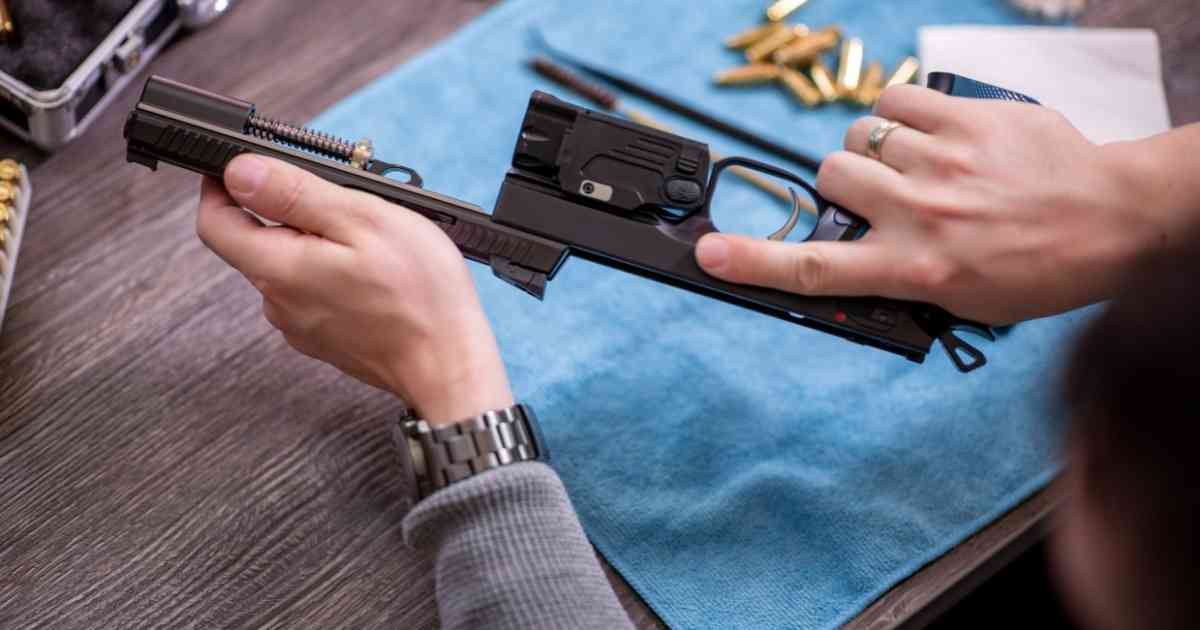
Your gun can develop various problems like rust, residual fouling buildup, failure to fire, failure to eject, and/or failure to feed.
Proper maintenance (or lack thereof) influences the durability, longevity, and reliability of your precious firearm.
Even historical firearms can benefit from the appropriate gun cleaning routine as this action touches up their protective layers and keeps them in the best condition they can be.
Here’s more on why you should start using your disassembly tools more frequently today.
Issue 1 – Rusting
The metal fragments of your firearm can give in to rust, whether you use it every day, or keep your gun in storage for the most part. Corrosive ammo residue can damage the internal elements of your gun while using your gun in harsh weather conditions can allow water to enter it.
When you have a regular cleaning plan and complement that with proper storage, you can counteract all of these problems with ease.
Issue 2 – Residual Fouling Buildup
Each bullet you fire leaves a residue behind in the barrel of your gun. Depending on the bullet material, the dirty barrels could contain chunks of carbon deposits, lead, and/or copper fouling. The buildup of barrel fouling affects the performance of your gun.
Apart from lead, copper, and carbon deposits, other damaging elements that could build up in your gun include dirt particles, microscopic metal fragments, and salt, to mention a few.
Not only can this reduce barrel life, but a fouled barrel inhibits shot accuracy and can trigger serious reliability issues. Even if you aren’t into competition shooting and don’t need a firearm for self-defense, it never hurts to keep a clean barrel at all times.
Issue 3 – Failure to Fire
This is what happens when you pull the trigger of a gun but it doesn’t release a round. It’s an issue that’s commonly experienced with guns that have a regular cleaning procedure.
Failure to fire can be a major inconvenience if you have intense range sessions planned or find yourself in a dicey situation. But more than this, it puts you at risk of a live round blowing up in the gun chamber. Such an incident can hurt you incredibly.
Again, regular maintenance can drastically reduce the chances of this happening, as it would eliminate dirt buildup, carbon fouling, and all the other culprits that clog up your gun.
Issue 4 – Failure to Eject or FTE
Not cleaning your gun can result in jamming the chamber over time. While this doesn’t put you at much risk, it can negatively affect your experience during range time.
Regular weapon cleaning can ensure that this is never an issue.
Issue 5 – Failure to Feed or FTF
When you over-oil your gun, there’s a risk that the lubricant can sip into unwanted places. For example, it could get into the mechanism that shifts the rounds from the magazine to the chamber.
Should this happen, the round may not enter the chamber and no shot will be fired. Gun owners who develop firearm cleaning habits can more easily see and prevent these problems.
How to Clean Your Gun Like a Pro
Know as much as you can about your gun, don’t skimp on quality cleaning solvent and tools, watch your barrel and load, and make sure you touch every nook and cranny of the firearm.
The more you know about your gun, the better you’ll be able to clean it. This is more so the case because different guns will often require different cleaning measures. You can start by reading the owner’s manual and checking reliable sources online for the best cleaning tips for your particular gun model.
Similarly, if you’re going to clean your gun at all, you might as well do it right. With this in mind, ensure you only use the best cleaning products and cleaning tools for the maintenance exercise.
Your barrel and load are two other elements of gun cleaning you shouldn’t ignore. Make sure you’re as familiar with your barrel’s operation as possible.
Finally, all guns have certain spaces that can be small and difficult to reach. Whenever you go on a cleaning spree, make sure you focus on those areas as that’s likely where you’ll find the most buildup of potentially damaging materials.
Conclusion
How often should I clean my gun? Now, you know that the answer to this question depends on the type of gun you use and how often you use it. Whether you use your gun or not, a deep, bi-annual cleaning can do a lot to keep cleanliness issues at bay.
Now that your gun’s clean, all that’s left is for you to pick up the best rangefinder with a ballistic calculator for accurate shooting!


